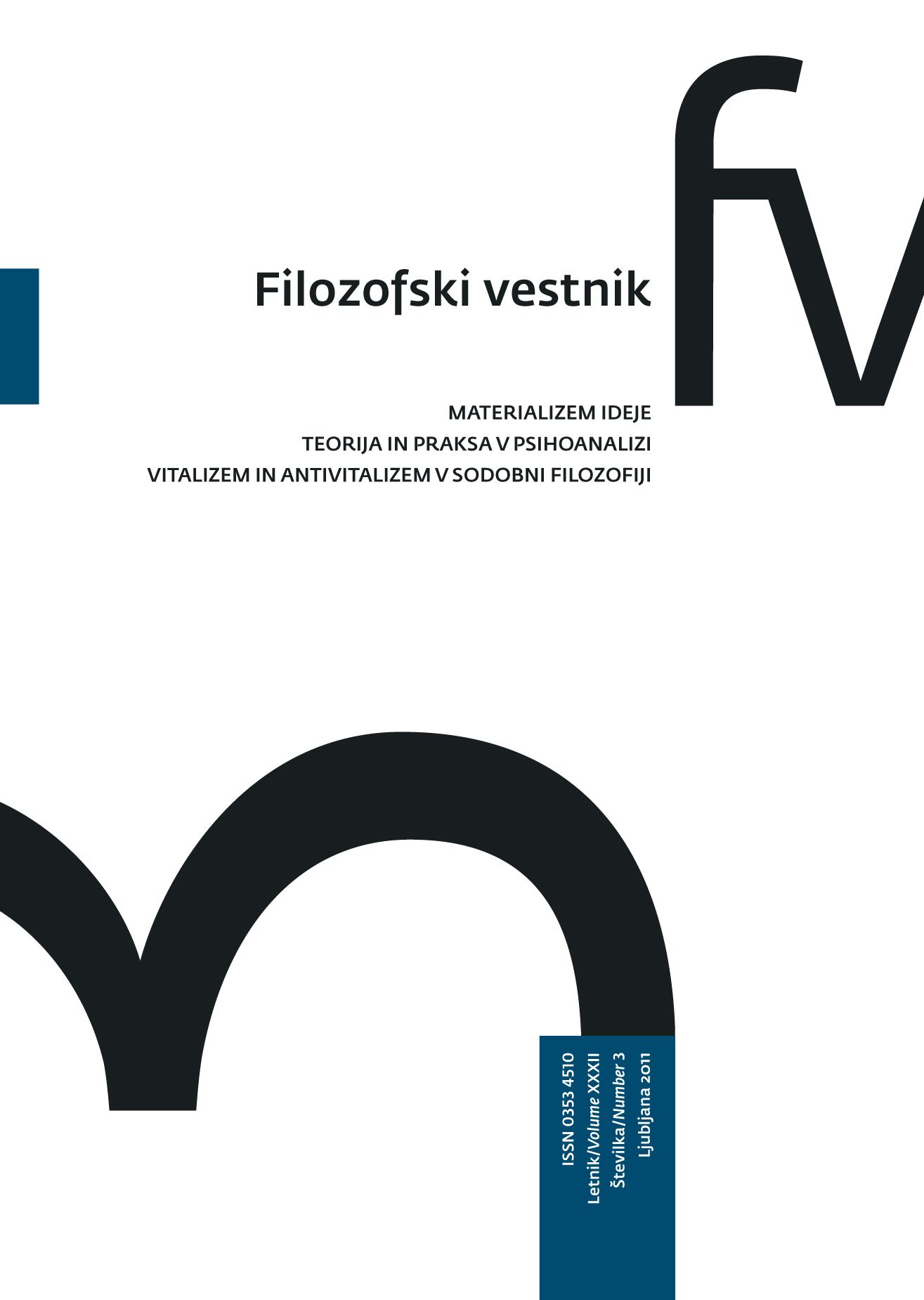Izkustvo in struktura. O konstrukciji psihoanalitične vednosti
Ključne besede:
psihoanaliza, Freud, Lacan, praksa, izkustvo, struktura, vednostPovzetek
Tekst izhajajoč iz štiri propozicij (»ni »teoretske« psihoanalize, ni »aplicirane« psihoanalize, ni teorije nezavednega, analitični prijem ni matematičen) obravnava razmerje med teorijo in prakso. Preko obravnave razmerja med psihoanalizo in znanostjo pri Freudu pridemo do Lacanove vrnitve k Freudu, pri čemer je mogoče izpostaviti dve Lacanovi perspektivi o tem, kaj je psihoanalitična teorija. Prva, »teorija subjektove strukture«, Lacana približa Freudu, druga razume teorijo kot teorijo psihoanalitične prakse oziroma nekega diskurza. Lacan je prvi analitik po Freudu, ki postavi problem teorije na najzahtevnejšo raven, raven konceptov in izpostavi, kako zelo se ohranitev in obnova psihoanalize umešča v odvisnost od konceptov tega izkustva. Problem pa je v tem, da je za Lacana psihoanaliza praksa, »praksa za boljše počutje«, kar ima številne konsekvence. Eno izmed njih zadeva razmerje med teorijo in prakso, ki ne izgine povsem, je pa povsem predelano, pojem teorije ne zadeva »gospodarjeve vednosti«, temveč vednost o strukturito pa postavlja vprašanje »kaj je dober teoretik« in katera želja oziroma simptom pri nekem subjektu podpira in omogoči takšno elaboracijo vednosti.Prenosi
Podatki o prenosih še niso na voljo.
Prenosi
Objavljeno
2016-02-06
Kako citirati
Askofaré, S. (2016). Izkustvo in struktura. O konstrukciji psihoanalitične vednosti. Filozofski Vestnik, 32(3). Pridobljeno od https://ojs.zrc-sazu.si/filozofski-vestnik/article/view/4171
Številka
Rubrike
Teorija in praksa v psihoanalizi
Licenca
Avtorji jamčijo, da je delo njihova avtorska stvaritev, da v njem niso kršene avtorske pravice tretjih oseb ali kake druge pravice. V primeru zahtevkov tretjih oseb se avtorji zavezujejo, da bodo varovali interese založnika ter da bodo povrnili morebitno škodo.
Podrobneje v rubriki: Prispevki





